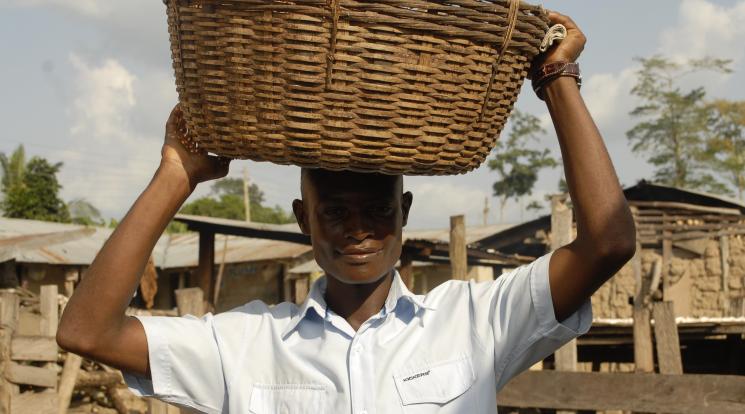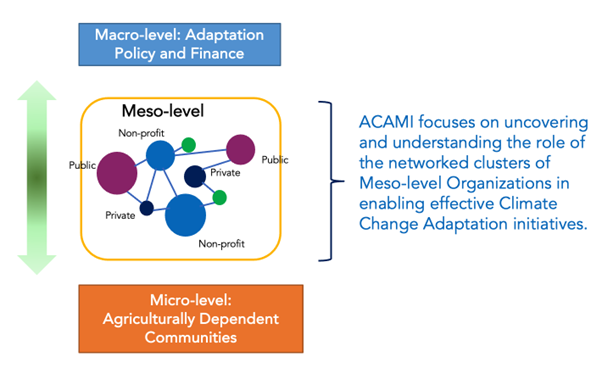
Accelerating Climate Adaptation via Meso-level Integration (ACAMI)
Focus area(s)
Featured Projects
Featured ProjectsThis project, funded by a $1.25 million grant to ASU from the Bill & Melinda Gates Foundation looks at the ways in which organizations help African farmers adapt to Climate Change.
Partners
African Climate & Development Initiative
ASU Julie Anne Wrigley Global Futures Labratory
ASU Swette Center for Sustainable Food Systems
Africa Research & Impact Network
Southern African Confederation of Agricultural Unions
Vision 
ACAMI envisions a transformed institutional context for inclusive and effective adaptation in African small scale farming systems, in which “meso-level” organizations -- connecting financial sponsors and policy makers to farmers -- use and share knowledge on their capacities and strengths in novel partnerships, helping farmers access the knowledge, data, climate services and other resources they value for improved risk management and sustainable livelihoods under climate change.
Mission
ACAMI’s mission is to identify leverage points and bottlenecks to enable meso-level organizations (MLOs) to serve as catalysts of equitable and effective adaptation for African small scale producers. Through collaborative approaches, ACAMI integrates knowledge and develops decision-support tools that will facilitate the mobilization of MLOs’ capacities, thus enhancing communities of practice in relation to resilient and sustainable small scale farming systems.
Meso Level Organizations (MLOs) [working definition]:
We refer to MLOs as organizations that are involved in implementing climate change adaptation (CCA) projects/ interventions intended to benefit agricultural small scale producers (SSPs). These can be private or public sector organizations and they may range in terms of their level of formality (e.g. local community based organizations (CBO) vs. an international non-government (NGO) vs. a private sector service provider). They are connected in networks of complementary skills and experiences to carry out the intentions of investment projects and policy. What is common among these organizations is that they play an intermediary role between the SSPs (micro level) and the policy, scientific and finance communities (macro-level). They therefore hold specific expertise and experience in the practical challenges of climate change adaptation. We are particularly interested in those MLOs that work in close proximity with SSPs and are therefore able to understand their needs, values and priorities while at the same time are also engaged with the agendas and stipulations of funding agencies and sponsoring organizations. We argue that these organizations and the connections among them have a potentially enormous impact on farmers and farming communities through the knowledge they integrate, decisions they make, and resources they provide.